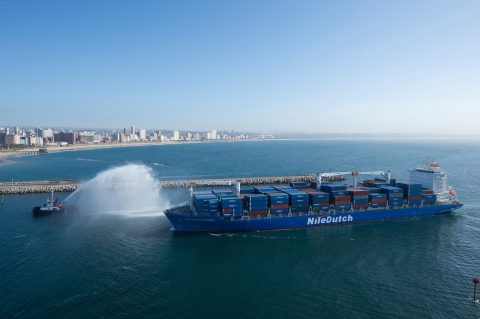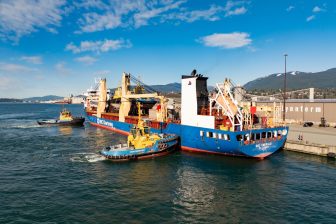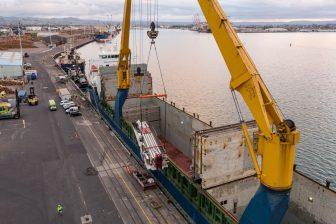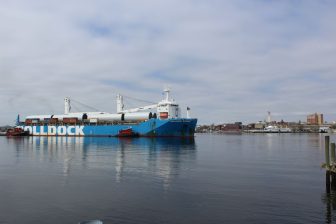
Hapag-Lloyd acquires Africa specialist NileDutch
Hapag-Lloyd has acquired NileDutch to strengthen the company’s position in the African market. “Our combined customer base will benefit from a denser network from and to Africa as well as from a much higher frequency of sailings”, says Hapag-Lloyd’s CEO Rolf Habben.
NileDutch is one of the leading providers of container services from and to West Africa. The company is present in 85 locations across the world and has 16 own offices in the Netherlands, Belgium, France, Singapore, China, Angola, Congo and Cameroon. With 10 liner services, around 35,000 TEU of transport capacity and a container fleet of around 80,000 TEU, the company connects Europe, Asia and Latin America with West and South Africa. The company is headquartered in Rotterdam and has roughly 350 employees.
“Africa is an important strategic growth market for Hapag-Lloyd”, Habben Jansen explains the move. “The acquisition of NileDutch strengthens our position in West Africa and will be an excellent addition to our existing activities on the continent.”
Breakbulk services
According to NileDutch’s website, the Netherlands-based shipping company also offers multipurpose shipping services. However, when PCJ reached out to Hapag-Lloyd to ask if those services are included in the agreement, the spokesperson said the German carrier is buying all activities of NileDutch, but far as the company knows, NileDutch “does not have any structural MPV services and no more MPV ships in their fleet.” NileDutch declined to comment on the matter.
In a press release, NileDutch’s president Wim van Aalst did say Hapag-Lloyd is a good fit for the company. “Combining our business and expertise in West Africa with Hapag-Lloyd´s worldwide network will enable us to take the next step and further develop the Africa business”, he comments
The completion of the transaction is subject to the approval of the responsible antitrust authorities.
You just read one of our premium articles free of charge
Register now to keep reading premium articles.




